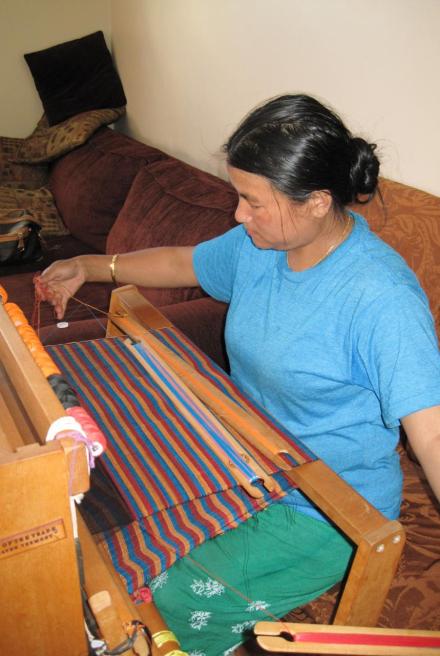
Worcester, MA
United States
When she arrived in Worcester in 2017 Tirtha often wove after coming home from work. She would weave in her living room in her family’s sunny triple decker apartment in south Worcester. Her cloths were almost always the standard sort of Bhutanese traditional textile used back in the refugee camp’s craft workshop as material for making the Nepalese man’s ceremonial hat, the topi. She used the standard colors, too: red, cream, blue, and black for the Nepalese market. The textile field would include rows of narrow bands, then larger-scale rows filled with six-sided lozenge shapes (one found throughout many parts of Asia). Tirtha employed supplementary weft pattering. Her work was precise and her motifs were tightly composed.
Tirtha is one generation younger than the refugee community’s elder master weavers such as Maita and Jahar, who also lived in South Worcester. They taught her to weave. Tirtha and her family have now bought a house and her daily tasks and full-time job outside the home mean that she no longer weaves.